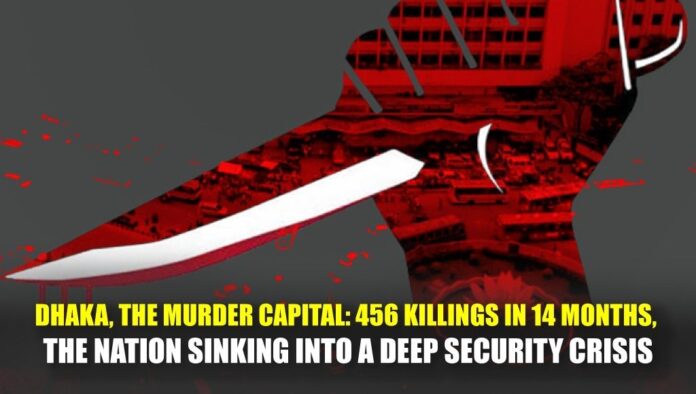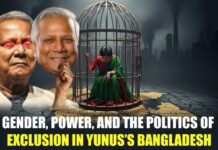
According to contemporary political analysts, the country’s governance and security structure has reached such a state that many now refer to the capital Dhaka as a “city of corpses.” Critics allege that due to the current government’s inefficiency, policy disorder, and instability within state machinery, criminal activity has surged; citizens have lost their basic sense of security.
The recent chain of events in Dhaka has turned into a nightmare that is difficult to comprehend. Murders, abductions, mutilated bodies, mob beatings—altogether the city is trapped in an abnormal atmosphere of fear. Every day the news brings reports of new bodies; from unidentified individuals to politically affiliated people and businessmen—no one is being spared from this violence. The capital is gradually turning into a helpless, unprotected, and anxious city.
Human rights organizations and security observers note that the pressure created on the security apparatus following political unrest has yet to ease. Attacks on police stations, looted weapons, prison riots—these incidents resulted in numerous arms spreading into the hands of criminals. Civil society questions: Is there any long-term plan to recover these weapons or identify the perpetrators?
When public confidence in law-enforcement agencies declines, criminals naturally become reckless. Killings carried out in broad daylight inside shops, murderers walking fearlessly in front of CCTV cameras—these scenes clearly show that criminals are not particularly afraid of trial or punishment.
The alarming rise in mob beatings has made the situation even more complex. When people lose faith that the state will protect them, a culture of vengeance—not law—begins to take hold in society, which is dangerous for any nation.
The rule of law survives on the people’s trust in the government. In politically contested or challenging situations, state institutions often become weakened, and this directly affects public safety. Various civic groups and observers allege that due to uncertainty within state machinery, political pressure, and policy conflicts, law-enforcement agencies are often unable to take effective action.
In such circumstances, criminals become emboldened; ordinary people lose their sense of security. As a result, society becomes overwhelmed with fear, uncertainty, and mistrust.
Bodies found in dustbins, rivers, drains—not only do these signal a rise in crime, they also reflect how little value is left for human life. The increase in incidents of body mutilation paints a dark picture of the mindset of criminals. It indicates that they believe they will not be caught, let alone punished.
It is a terrifying warning: in a country where the rule of law is weak, the value of human life rapidly diminishes.
Different observers point out that there may be groups that find political gain in a climate of insecurity. When people live in fear, they cannot raise larger political questions—about legitimacy, policies, decisions—everything becomes overshadowed. This is why many analysts believe prolonged instability may push society into a deeper crisis.
If a country remains exposed to this level of violence for 14 consecutive months, it is not merely a crime problem—it is a crisis of overall state governance. Elections, governance, policy, human rights—everything becomes questionable.



